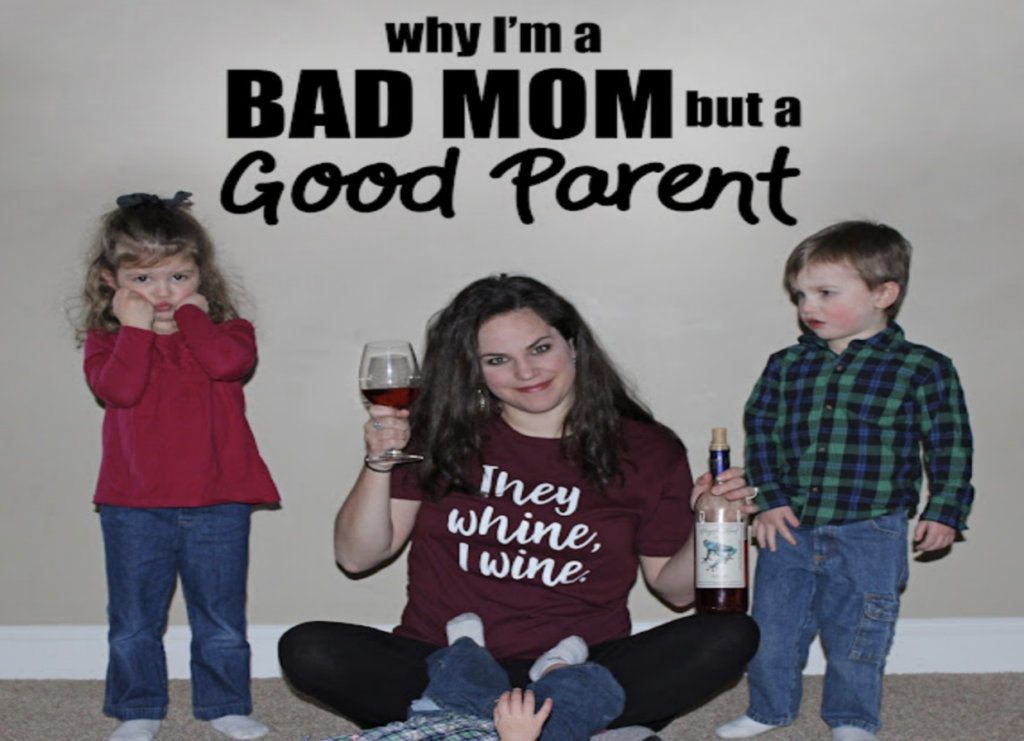If you’ve been on social media the past few years, I’m sure you’ve seen the memes and videos about there being two kinds of moms. They’re usually a joke made in favor of the “second” kind of mom, the messy, less-than-perfect mom who can’t wait for her glass of wine at the end of the night. They juxtapose her against the “first” kind of mom, the perfectly-coiffed-at-drop-off, beige-and-cream-playroom, gentle-parenting-expert mom. It’s meant to be a joke, but the reality is that this is the extent of variation we see in mothers in the media. We see the moms who do everything “right.” You know, the ones on the waiting list for the best preschool in town from the moment they begin trying to conceive. The ones who feel made complete by the addition of their child have all their expectations of motherhood met. Then there are the “messy” moms. The moms who feed their kids cereal off the car floor because they slept through their alarms. The ones who nonchalantly give their kid a high five when they hear from their teacher that they pushed a bully off the top of the climbing dome at recess. The ones who lean into motherhood in all of its imperfections and ride it like a wave.
The media has made us believe that these are the two kinds of parenting available to us. But what about the parents who are somewhere in between those two extremes? And what about the ones who don’t feel the fierce comfort exhibited by either type of those portrayals of parenthood? The truth is parenting is a massive spectrum in every way. What someone’s experience is like as a parent is as diverse as our experiences as humans. Some of us will slide into the two widely-accepted roles of parenthood. But far more of us will end up somewhere else on the spectrum, where we feel out of place and ineffective. I want to let you in on a secret. There are no “good” or “bad” parents here. There are just parents.
If you are reading this, you care about your role as a parent. And that is enough. Beyond that, everything that is happening through your parenting journey can’t be classified as “acceptable” or “unacceptable.” It simply is. There will be times in your parenting journey when you love your child so fiercely you want to pull them to you and breathe them in. There will be other times when you look at them and think, “my kid is a jerk.” And there will be times when you resent the fact that you ever chose to have children. We all experience these moments but to very different degrees. Some of us live in the land of heady, intoxicated love most of the time, with brief visits to the land of “I’ve made a mistake.” Others of us spend most of our time wishing we had stayed on birth control through menopause and moved to the south of France, with brief glimpses of “oh, this is why people have children.”
The problem is society has made us believe we are only good parents when we live in the land of intoxicating love. We have been made to cower in shame when we feel anything but sheer joy at being a parent. No other human relationships are treated this way. We don’t expect spouses to be head-over-heels throughout their entire marriages. We are generous with our social allowances of letting couples have “problems.” We admire people who seek marriage counseling. We’ve even become incredibly accepting of divorce. The same is true for friendship: we expect friends to fight, go through periods of falling out of touch, outgrow each other and then reconnect. We don’t even expect most adults to particularly like their parents. (“My mom is crazy. I’m only inviting her because the kids want to see her.” “Ugh, mine too! She makes me want to scream!”) but when it comes to the love between parents and children, we hold the unattainable and ridiculous belief that it should be perfect all the time. That expectation doesn’t do us any good. It just creates parents who shuffle through the motions of “perfect love” while feeling inadequate, burned out, and alone.
I propose a change. Let’s put a stop to this nonsense of believing we are only good parents when we love our children so much we want to devour them. Instead, let’s give ourselves permission to allow our journeys to unfold in the way of all other loving relationships. Let’s give ourselves permission to examine our feelings of frustration and resentment instead of burying them. The next time you feel yourself glaring at your teenager with clenched fists and a wave of searing anger through your heart, don’t scream into a pillow and then plaster on a smile to drive them to soccer practice. Ask yourself, “why am I feeling this way? Where is this stemming from?” Maybe it’s because you’ve had to cancel your plans for yoga three times this week because your child forgot to ask for a ride. Or perhaps it’s because you can’t stand the awkward silence during the car ride. Whatever it is, at least you’ve got your answer, and you can begin to find a solution. You can recognize that in this relationship, just like any other, the second party (your child, who is their own person and whose behavior and emotions you cannot control!) has let you down/made you angry/impacted your life in a less than ideal way. Or you can recognize that something else is amiss-you haven’t had any time to yourself, or you feel like your interests aren’t valued in the family. And you can take steps toward improving that, too.
By bringing the realities of parenting out of the darkness and into the light, we can become better, happier humans who teach our children that loving relationships are complicated, complex, and ever-changing. That’s a ripple effect worth sharing.

